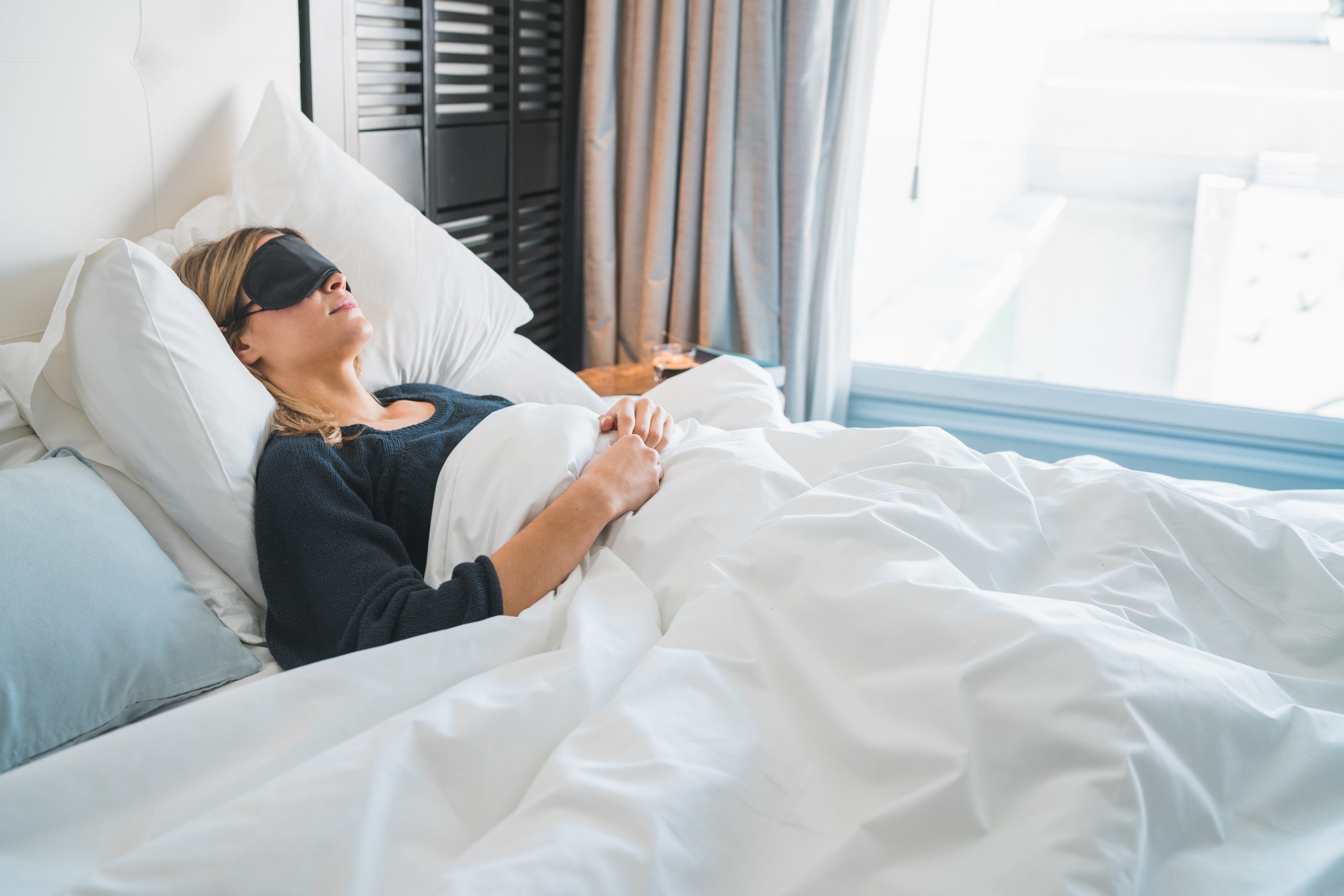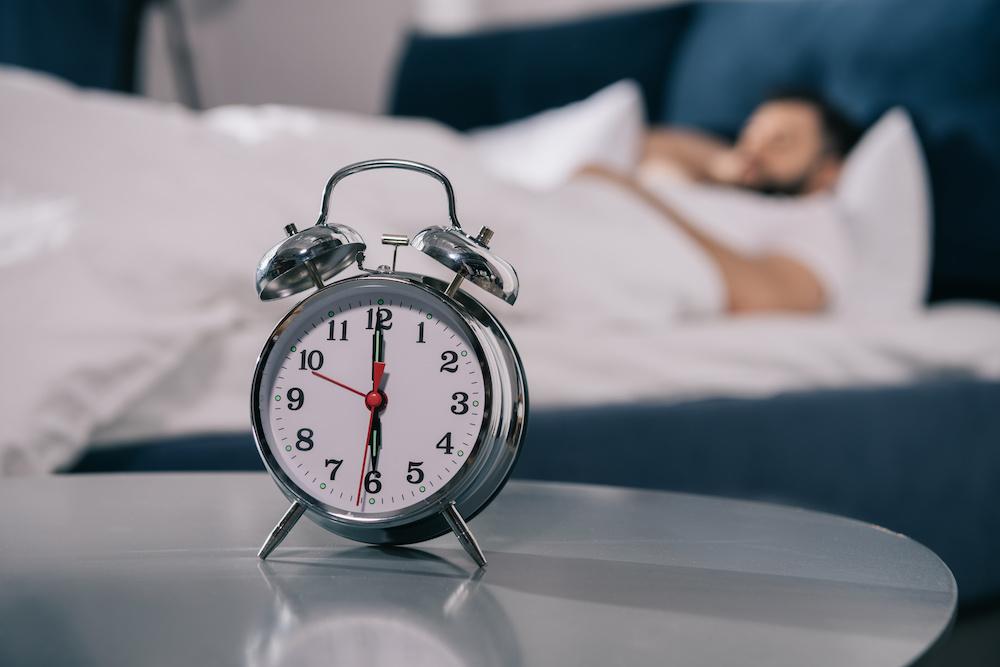How to Create a Relaxing Bedtime Routine for Better Sleep

Importance of a Bedtime Routine for Quality Sleep

Creating a consistent bedtime routine is essential for quality sleep. A structured routine can help signal to our bodies and minds that it is time to wind down and prepare for rest. By setting aside dedicated time each night for relaxation and self-care, we can promote a more restful and rejuvenating sleep experience.
When we establish a bedtime routine, we are essentially training our bodies to recognize and respond to cues that indicate it is time for sleep. This can be particularly beneficial for those who struggle with falling asleep or staying asleep throughout the night. By engaging in calming activities before bed, such as reading a book, practicing deep breathing exercises, or taking a warm bath, we can create a sense of relaxation that can greatly improve our ability to fall asleep and stay asleep for longer periods.
In addition to its direct impact on sleep quality, a bedtime routine can also have a positive influence on our overall well-being. By incorporating activities that promote relaxation and stress reduction, such as meditation or journaling, into our nightly routine, we can reduce anxiety levels, improve mood, and enhance our mental and emotional resilience. Furthermore, a consistent bedtime routine can provide a sense of structure and stability, offering a counterbalance to the often chaotic and demanding nature of our daily lives.
Setting the Stage: Creating a Calming Sleep Environment

A calming sleep environment is essential for achieving quality sleep and promoting overall well-being. When it comes to setting the stage for a restful night, consider the following factors that can significantly impact your sleep environment.
First and foremost, prioritize darkness in your bedroom. Light exposure, especially during the night, can disrupt your sleep-wake cycle and affect the quality of your sleep. Invest in blackout curtains or blinds to block out external light sources. If you have electronic devices with LED lights in your bedroom, make sure to turn them off or cover them up to create a dark and peaceful environment. Darkness signals your brain to release melatonin, a hormone that regulates sleep, promoting a more restful and rejuvenating slumber.
In addition to darkness, it’s important to maintain a cool and comfortable temperature in your sleeping environment. The ideal temperature for sleep varies for each individual, but generally, a cooler room temperature, between 60 to 67 degrees Fahrenheit (15 to 19 degrees Celsius), can support better sleep. Make use of lightweight sheets and blankets that can be easily adjusted to suit your comfort preferences.
Creating a clutter-free space can also contribute to a calming sleep environment. A tidy bedroom can help reduce distractions and create a sense of peace and tranquility. Take a few minutes each day to put away items and organize your surroundings. By decluttering your sleeping space, you can promote relaxation and improve the overall aesthetic, contributing to a more serene environment conducive to quality sleep.
By taking these steps to create a calming sleep environment, you can enhance your sleep quality and optimize your ability to rest and recharge each night. Remember that every individual is unique, so it may be helpful to experiment with different techniques to find what works best for you.
Limiting Electronic Devices Before Bedtime

The use of electronic devices before bedtime has become increasingly common in our modern society. However, research has shown that this habit can significantly affect our sleep quality. Electronic devices emit blue light, which can suppress the production of melatonin, a hormone that regulates sleep. This can disrupt our circadian rhythm and make it more challenging to fall asleep.
Furthermore, the content we consume on our electronic devices can also have an impact on our sleep. Engaging in stimulating or stressful activities, such as checking work emails or scrolling through social media, can increase our levels of arousal and make it harder to relax before bedtime. Therefore, it is essential to limit our use of electronic devices in the evening, ideally an hour or two before going to bed, to allow our minds and bodies to wind down and prepare for restful sleep.
To promote a healthier bedtime routine, consider replacing electronic devices with activities that promote relaxation and calmness. Engaging in activities such as reading a book, listening to soft music, practicing mindfulness, or meditating can help shift our focus away from the stimulation of electronic screens and promote a state of relaxation. By limiting our use of electronic devices before bedtime and incorporating more soothing activities, we can improve our sleep quality and wake up feeling refreshed and rejuvenated the next morning.
Incorporating Relaxation Techniques into Your Routine
Relaxation techniques can be a valuable addition to your bedtime routine, helping to calm both your body and mind and prepare you for a restful night’s sleep. Incorporating these techniques into your nightly ritual can not only improve the quality of your sleep but also reduce stress and anxiety, promote relaxation, and enhance overall well-being.
One effective relaxation technique that you can incorporate into your routine is deep breathing exercises. Deep breathing involves taking slow, deep breaths, inhaling through your nose and exhaling through your mouth. This technique activates the body’s relaxation response, slowing down your heart rate and promoting a sense of calmness. You can try lying in a comfortable position, closing your eyes, and focusing on your breath as you inhale deeply, hold for a few seconds, and then exhale slowly. Repeat this pattern several times, allowing yourself to fully relax with each breath. Deep breathing can be particularly beneficial for those who struggle with racing thoughts or find it difficult to wind down at night.
Another relaxation technique that can help promote better sleep is progressive muscle relaxation. This technique involves tensing and then releasing each muscle group in your body, promoting a deep state of relaxation. You can start by tensing the muscles in your toes and slowly working your way up through your legs, abdomen, chest, arms, and finally, your face. As you tense each muscle group, hold for a few seconds, and then consciously release the tension, allowing your body to sink into a state of relaxation. Progressive muscle relaxation can help relieve tension and promote relaxation throughout your entire body, helping you to achieve a more peaceful night’s sleep.
Incorporating these relaxation techniques into your bedtime routine can be a valuable tool in improving your sleep quality and overall well-being. Experiment with different techniques to find what works best for you, and make it a consistent part of your nightly ritual. By incorporating relaxation techniques into your routine, you can create a peaceful and calming environment that supports a restful night’s sleep.
Watch Dr. Hansaji Yogendra describe the power of this exercise.
The Power of a Warm Shower or Bath

Taking a warm shower or bath before bedtime is a simple yet effective way to promote a restful night’s sleep. The soothing warmth of the water can help relax the body and reduce muscle tension, making it easier to unwind and prepare for a good night’s rest. Additionally, the rise in body temperature during a warm shower or bath can help trigger the body’s natural sleep mechanisms, making it easier to fall asleep and stay asleep.
Taking a warm shower or bath before bed can also have specific benefits for those who struggle with insomnia or have difficulty falling asleep. The drop in body temperature that occurs after exiting a warm shower or bath can mimic the natural drop that occurs during sleep, signaling to the body that it’s time to rest. This can help regulate the sleep-wake cycle and promote a deeper and more restorative sleep. For individuals who have trouble relaxing their minds before bed, incorporating a warm shower or bath into their bedtime routine can provide a designated time for relaxation and help transition the body and mind into a state of sleepiness.
Choosing the Right Bedtime Snack for a Restful Sleep
Choosing the right bedtime snack can play a crucial role in promoting a restful night’s sleep. The foods we eat before bed can either disrupt or enhance our slumber, depending on their nutritional composition. While it is important to avoid heavy or greasy meals that can lead to indigestion and discomfort, there are certain snacks that can actually aid in promoting relaxation and preparing the body for sleep.
One option is to choose snacks that are high in tryptophan, an amino acid that facilitates the production of serotonin and melatonin, both of which are important for regulating sleep-wake cycles. Foods such as turkey, cheese, nuts, seeds, and bananas are all rich in tryptophan and can help promote feelings of calm and drowsiness. Moreover, incorporating carbohydrates into your bedtime snack can aid in the absorption of tryptophan, further enhancing its sleep-inducing effects. Opt for whole grain crackers, oats, or a small serving of whole wheat bread to maximize the benefits.
Establishing a Consistent Sleep Schedule
Establishing a consistent sleep schedule is a fundamental step towards achieving a restful night’s sleep. Our bodies thrive on routine, and maintaining a regular sleep-wake cycle can have a significant impact on our overall sleep quality and well-being. Numerous studies have shown that individuals who adhere to a consistent bedtime and wake-up time often experience improved sleep efficiency and enhanced daytime functioning.
When setting a sleep schedule, it is important to select a bedtime and wake-up time that allows for adequate sleep duration. The National Sleep Foundation recommends that adults aim for 7-9 hours of sleep per night, although individual needs may vary. By consistently going to bed and waking up at the same time each day, our internal body clock, also known as the circadian rhythm, becomes synchronized, making it easier to fall asleep and wake up feeling refreshed.
Developing a consistent sleep schedule is not only about the timing but also about creating a conducive environment for sleep. It is essential to prioritize sleep hygiene practices, such as ensuring a comfortable sleep surface, maintaining a cool and dark bedroom, and keeping noise levels to a minimum. Additionally, establishing a relaxing pre-bed routine can signal to the body that it’s time to wind down and prepare for sleep. By being consistent with these habits, we pave the way for more restful and restorative nights, ultimately leading to improved well-being and cognitive functioning throughout the day.
Here’s a table summarizing tips for establishing a consistent sleep schedule:
| Establishing a Consistent Sleep Schedule | Recommendations and Considerations | Credible Source |
|---|---|---|
| Set a Regular Bedtime and Wake-Up Time | Choose a consistent bedtime and wake-up time to regulate your body’s internal clock. Aim for 7-9 hours of sleep for adults. | National Sleep Foundation – How Much Sleep Do We Really Need? |
| Be Consistent Every Day, Including Weekends | Stick to your sleep schedule even on weekends to reinforce your body’s natural sleep-wake cycle. Consistency is key for establishing a routine. | Mayo Clinic – Can Lack of Sleep Make You Sick? |
| Create a Relaxing Bedtime Routine | Develop pre-sleep rituals like reading, taking a warm bath, or practicing relaxation techniques to signal to your body that it’s time to wind down. | American Sleep Association – Sleep Hygiene Tips |
| Limit Exposure to Screens Before Bed | Reduce screen time at least an hour before bedtime to minimize exposure to blue light, which can interfere with melatonin production and disrupt sleep. | Harvard Health Publishing – Blue light has a dark side |
| Avoid Stimulants in the Evening | Limit the intake of caffeine and nicotine in the hours leading up to bedtime, as these substances can act as stimulants and affect your ability to fall asleep. | Sleep Foundation – Food and Sleep |
| Create a Comfortable Sleep Environment | Make your bedroom conducive to sleep by keeping it dark, quiet, and cool. Invest in a comfortable mattress and pillows for optimal sleep quality. | National Sleep Foundation – How to Create the Ideal Sleep Environment |
| Limit Naps, If Needed, and Time Them Wisely | If napping, keep it short (20-30 minutes) and avoid napping late in the day to prevent interference with nighttime sleep. | Mayo Clinic – Napping: Do’s and don’ts for healthy adults |
| Listen to Your Body | Pay attention to your body’s natural sleep-wake signals. If you consistently feel sleepy at a certain time, adjust your schedule to align with your body’s needs. | Sleep Foundation – What is a Circadian Rhythm? |
Creating a Pleasant and Soothing Bedtime Ritual
Creating a pleasant and soothing bedtime ritual is key to preparing your mind and body for a restful night’s sleep. By establishing a consistent routine that incorporates relaxing activities, you can signal to your brain that it’s time to wind down and prepare for rest. Here are some suggestions on how to create a bedtime ritual that promotes relaxation and a deeper sleep.
One important aspect of a bedtime ritual is to ensure that your sleep environment is calm and conducive to rest. This means tidying up your bedroom, keeping it cool and dark, and removing any distractions that may interfere with sleep. You can also incorporate elements that promote relaxation, such as soft lighting, soothing scents, or calming music. By creating a peaceful and inviting sleep space, you set the stage for a more restorative sleep experience.
Another effective component of a bedtime ritual is to engage in relaxation techniques that help quiet the mind and release tension in the body. These can include deep breathing exercises, progressive muscle relaxation, or guided imagery. By practicing these techniques before bed, you can reduce stress and anxiety, allowing your body to enter a state of relaxation more easily. Experiment with different techniques to find what works best for you, and be consistent in including them as part of your bedtime routine.
The Role of Exercise in Preparing for Bed
Regular exercise not only benefits our overall health and wellbeing but also plays a significant role in preparing our bodies for a restful night’s sleep. Engaging in physical activity during the day can help reduce stress, increase melatonin production, and promote deeper, more restorative sleep. Studies have shown that individuals who participate in regular moderate-intensity exercise experience fewer sleep disturbances and fall asleep more quickly compared to those leading sedentary lifestyles.
When it comes to choosing the right type of exercise to enhance your sleep routine, it is important to find activities that suit your personal preferences and abilities. Aerobic exercises such as walking, jogging, or swimming can increase the production of endorphins, which promote relaxation and help relieve stress. Strength training exercises, on the other hand, have been found to improve sleep quality and reduce the prevalence of sleep disorders. It is recommended to engage in a combination of aerobic and strength exercises throughout the week for optimal sleep benefits. However, be mindful to finish your workouts at least a few hours before bedtime to allow your body temperature to cool down and promote a more rapid onset of sleep.
The Benefits of Journaling or Gratitude Practice
Journaling and practicing gratitude can have a profound impact on our overall well-being, including the quality of our sleep. In today’s fast-paced world, our minds are often cluttered with thoughts, worries, and stresses, making it difficult to unwind and relax before bed. Engaging in a journaling or gratitude practice allows us to intentionally shift our focus towards gratitude, positivity, and self-reflection, creating a sense of calm and peace before sleep.
Scientific studies have shown that journaling can help reduce symptoms of stress, anxiety, and depression, leading to improved sleep quality. By putting our thoughts and emotions on paper, we are able to process and make sense of them, which in turn can alleviate the mental burden that often keeps us awake at night. Additionally, practicing gratitude has been found to enhance feelings of contentment and happiness, leading to a more relaxed and restful state before bed. Taking a few moments each day to consciously reflect on the things we are grateful for can shift our mindset and set the stage for a peaceful night’s sleep.
Implementing Mindfulness and Meditation into Your Routine
Mindfulness and meditation are powerful tools that can greatly enhance your bedtime routine and contribute to a restful night’s sleep. Incorporating these practices into your nightly ritual can help calm the mind, reduce stress and anxiety, and promote a sense of relaxation and tranquility.
One way to incorporate mindfulness into your routine is to engage in a short meditation session before bed. Find a quiet and comfortable space where you can sit or lie down. Close your eyes, take a few deep breaths, and focus your attention on the present moment. Allow your thoughts and worries to gently pass by, without judgment or attachment. By practicing mindfulness meditation, you can train your mind to let go of racing thoughts and find a place of peace and stillness.
In addition to meditation, you can also incorporate mindfulness throughout your evening routine. Pay close attention to each task you engage in, whether it’s brushing your teeth, washing your face, or getting into bed. By fully immersing yourself in these activities, you can bring a sense of mindfulness to each moment, creating a calm and peaceful environment. Being mindful of your actions and surroundings can help shift your focus away from the stresses of the day and promote a state of relaxation and tranquility. These simple but powerful practices can be easily incorporated into your nightly routine, enabling you to experience the full benefits of mindfulness and meditation for a restful night’s sleep.
Avoiding Stimulants and Heavy Meals Before Bed
It is no secret that what we consume can have a significant impact on our sleep quality. Particularly before bedtime, it is crucial to be mindful of the substances we put into our bodies, as they can either help or hinder our ability to achieve a restful night’s sleep. Avoiding stimulants, such as caffeine and nicotine, is essential, as these substances can disrupt the natural sleep-wake cycle and make it more difficult to fall asleep. Furthermore, heavy meals should also be avoided before bed, as they can lead to discomfort and indigestion, making it challenging to relax and drift off into sound sleep.
Stimulants, such as caffeine and nicotine, are known to increase alertness and can interfere with our ability to fall asleep. Caffeine, commonly found in coffee, tea, soft drinks, and even some medications, can have a stimulating effect that lasts for several hours. It is advisable to limit or avoid the consumption of such caffeinated products at least six hours before bedtime to reduce the risk of sleep disturbances. Similarly, nicotine, commonly found in cigarettes and other tobacco products, also acts as a stimulant and can disrupt sleep patterns. Quitting smoking or avoiding nicotine use close to bedtime is recommended for those seeking a restful night’s sleep.
Additionally, consuming heavy meals before bed can negatively impact our sleep. When we eat a large meal, our body directs its energy towards the process of digestion. This can lead to discomfort, heartburn, and even acid reflux, all of which can disrupt our ability to settle into a peaceful sleep. It is advised to have dinner at least two to three hours before bedtime, allowing ample time for digestion before lying down. Furthermore, choosing lighter, nutrient-rich foods and avoiding greasy or spicy dishes can help minimize the risk of sleep disturbances caused by heavy meals.
In conclusion, avoiding stimulants, such as caffeine and nicotine, and refraining from heavy meals before bed can greatly contribute to a restful night’s sleep. Being mindful of what we consume and establishing healthy habits can help create the ideal conditions for quality sleep.
Troubleshooting Common Obstacles to a Restful Night’s Sleep
Sleep is essential for overall health and well-being, and experiencing obstacles to a restful night’s sleep can be frustrating. Fortunately, there are several common obstacles that can be addressed to help improve the quality of your sleep. One common obstacle is stress and anxiety, which can make it difficult to fall asleep and stay asleep throughout the night. Incorporating relaxation techniques such as deep breathing exercises or meditation into your bedtime routine can help calm the mind and promote a sense of relaxation, making it easier to drift off into a peaceful slumber.
Another obstacle to a restful night’s sleep is an uncomfortable sleep environment. Factors such as the temperature, lighting, and noise levels in your bedroom can greatly affect your ability to sleep soundly. Consider creating a sleep environment that is cool, quiet, and dark. Use curtains or blinds to block out any external light, and consider using earplugs or a white noise machine to drown out any disruptive sounds. Additionally, investing in a quality mattress and comfortable bedding can make a significant difference in promoting a comfortable and supportive sleep surface. By addressing these common obstacles, you can take steps towards a better night’s sleep and wake up feeling refreshed and rejuvenated.
What is the importance of a bedtime routine for quality sleep?
A bedtime routine helps signal to your body that it’s time to wind down and prepare for sleep. It can help relax your mind and body, leading to better sleep quality.
How can I create a calming sleep environment?
To create a calming sleep environment, minimize noise and light in your bedroom, ensure a comfortable temperature, and use soothing colors and scents. Additionally, investing in a supportive mattress and pillows can contribute to a more relaxing sleep environment.
Why should I limit electronic devices before bedtime?
Electronic devices emit blue light, which can interfere with your body’s natural sleep-wake cycle. It’s best to avoid using electronic devices, such as smartphones or tablets, for at least an hour before bedtime to promote better sleep.
How can I incorporate relaxation techniques into my bedtime routine?
You can incorporate relaxation techniques like deep breathing exercises, progressive muscle relaxation, or guided imagery into your bedtime routine. These techniques can help calm your mind and relax your body for better sleep.
What is the power of a warm shower or bath before bed?
Taking a warm shower or bath before bed can help relax your muscles and promote a sense of relaxation. The rise and subsequent decrease in body temperature can also signal to your body that it’s time to sleep.
What is the right bedtime snack for a restful sleep?
The ideal bedtime snack should be light and contain a combination of complex carbohydrates and protein. Examples include a small portion of whole-grain crackers with cheese, a banana with almond butter, or a cup of yogurt with berries.
Why is establishing a consistent sleep schedule important?
A consistent sleep schedule helps regulate your body’s internal clock, making it easier to fall asleep and wake up at the desired times. Going to bed and waking up at consistent times can improve sleep quality and overall sleep-wake patterns.
How can I create a pleasant and soothing bedtime ritual?
You can create a pleasant and soothing bedtime ritual by engaging in activities that help you relax and unwind. This can include reading a book, listening to calming music, practicing gentle stretches, or enjoying a cup of herbal tea.
What is the role of exercise in preparing for bed?
Regular exercise promotes better sleep by reducing stress, anxiety, and depression, improving sleep quality, and increasing the amount of time spent in deep sleep. However, it’s best to avoid intense exercise close to bedtime as it may stimulate the body.
What are the benefits of journaling or gratitude practice before bed?
Journaling or practicing gratitude before bed allows you to release any racing thoughts or worries, promote a sense of calm, and shift your focus to positive experiences or things you’re grateful for. This can contribute to a more peaceful and restful sleep.
How can I implement mindfulness and meditation into my bedtime routine?
You can incorporate mindfulness and meditation into your bedtime routine by dedicating a few minutes to focus on your breath, observe sensations in your body, or practice guided meditation. These practices can help quiet the mind and promote relaxation for better sleep.
Why should I avoid stimulants and heavy meals before bed?
Stimulants like caffeine and nicotine can interfere with sleep by keeping you alert and awake. Similarly, heavy meals close to bedtime may cause discomfort or indigestion, making it harder to fall asleep. It’s best to avoid consuming these substances several hours before bed.
How can I troubleshoot common obstacles to a restful night’s sleep?
Some common obstacles to a restful sleep include stress, anxiety, an uncomfortable sleep environment, or an inconsistent sleep schedule. By implementing the tips and strategies mentioned in this article, such as creating a bedtime routine, limiting electronic devices, and incorporating relaxation techniques, you can troubleshoot these obstacles and improve your sleep quality.





